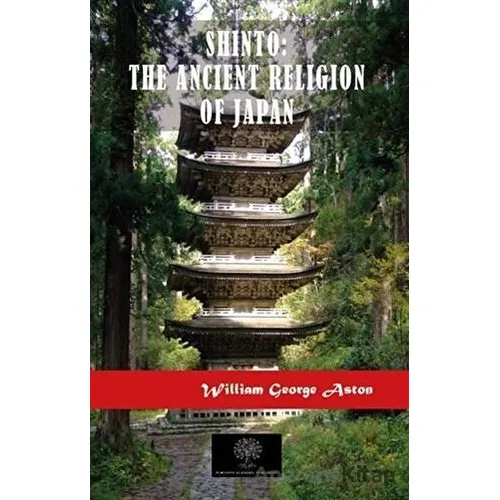Shinto: The Ancient Religion of Japan - William George Aston - Platanus Publishing
Hiç mesaj bulunmadı
| Taksit | Tutar | Toplam |
|---|---|---|
| Tek Çekim | 170.80 TL | 170.80 TL |
| 2 Taksit | 85.40 TL | 170.80 TL |
| 3 Taksit | 59.21 TL | 177.63 TL |
| 4 Taksit | 44.84 TL | 179.34 TL |
| 5 Taksit | 36.21 TL | 181.05 TL |
| 6 Taksit | 30.46 TL | 182.76 TL |
| Ödeme Türü | Toplam Tutar |
|---|---|
| Diğer Kredi Kartları | 170.80 TL |
| Havale / Eft | 170.80 TL |
| Posta Çeki | 170.80 TL |
| Kapıda Ödeme | 185.80 TL |
Kapıda ödemeli siparişlerde +15,00TL kapıda ödeme hizmet bedeli ilave edilir. | |
- Vade farksız taksitler KOYU renkte gösterilmektedir.
- X+X şeklinde belritilen taksitler (Örneğin: 2+3) 2 taksit olarak işleme alınmakta ancak ilgili bankanın kampanyası dahilinde 2 taksit üzerinden işlem yapıldığı halde 2+3 yani 5 taksit olarak kartınıza ve ödemenize yansımaktadır. (2 taksit seçilmiş olsa bile banka kampanyası dahilinde ekstradan vade farkı eklenmeden işlem 5 taksite bölünmektedir.)
Shinto: The Ancient Religion of Japan - William George Aston - Platanus Publishing
“Spiritism.—The gods o of ancient Shinto are, on the whole, as unspiritual beings as the gods of Olympus. Their doings are modelled on those of living men and women, not on those of ghosts. When Izanagi followed his wife Izanami to the land of the dead he found there not a spirit, but a putrefying corpse. Ghosts are as absent from the Kojiki and Nihongi as they are from the Old Testament Scriptures. Herbert Spencer?s ghost-theor y of the origin of religion derives no support from the Japanese evidence. There is, however, a spiritual element in Shinto which demands notice. Some of the gods are represented as having mitama (august jewels or souls) which reside invisibly in their temples and are the means of communication between Heaven and this world. The Earth or Kosmos deity Ohonamochi had a mitama (double) which appeared to him in a divine radiance illuminating the sea, and obtained from him a promise that, in consideration of the assistance the latter had rendered in reducing the world to order, he should have a shrine consecrated to him at Mimoro. Susa no wo?s mitama was „settled? at Susa in Idzumo. The element tama (soul) enters into the names of several deities. This implies a more or less spiritual conception of their nature. Sometimes we hear of two mitama, one of a gentle, the other of a violent nature.”











